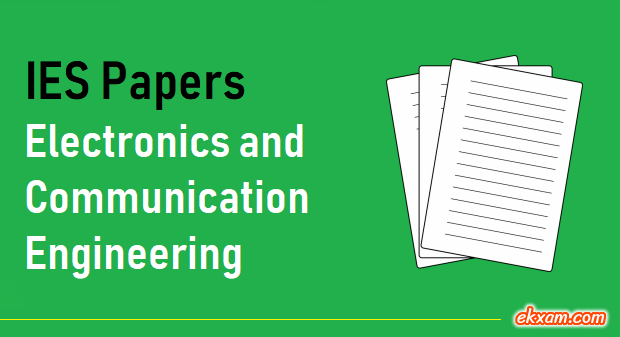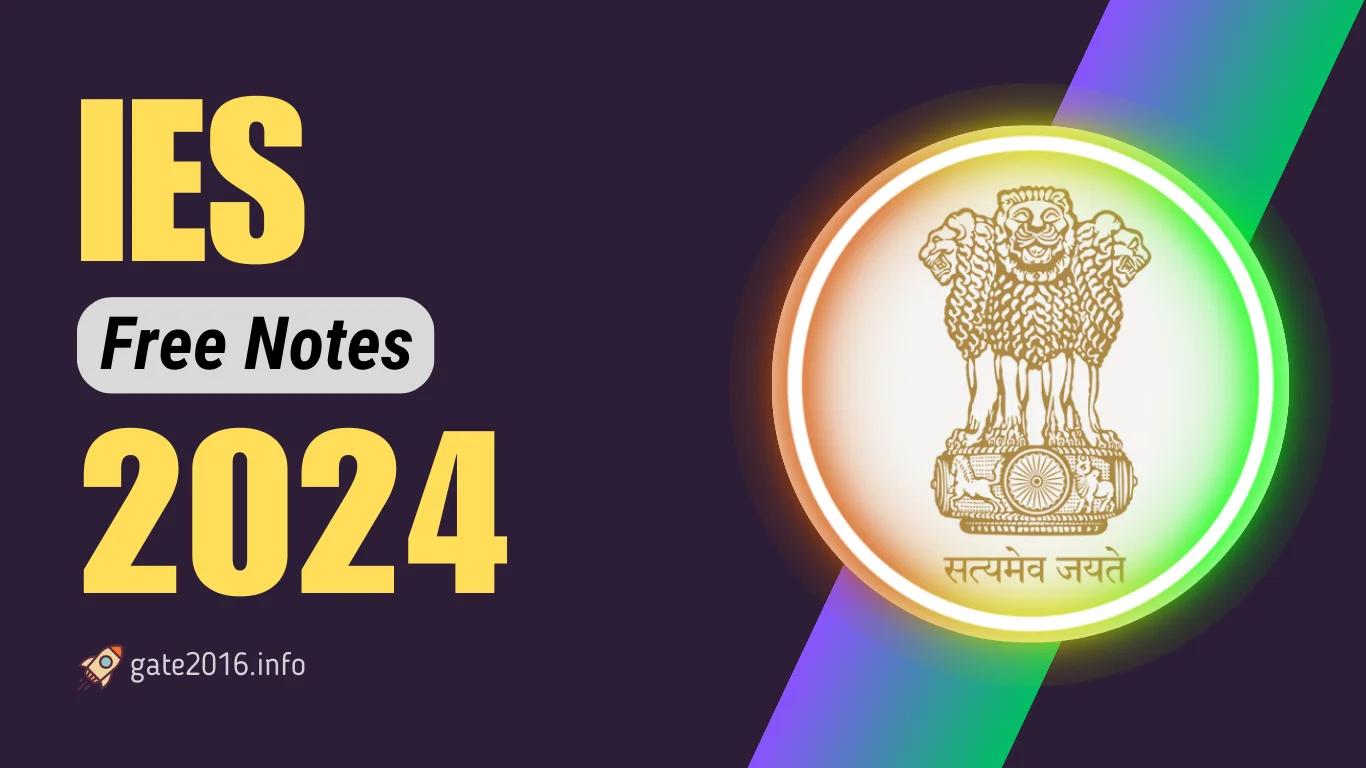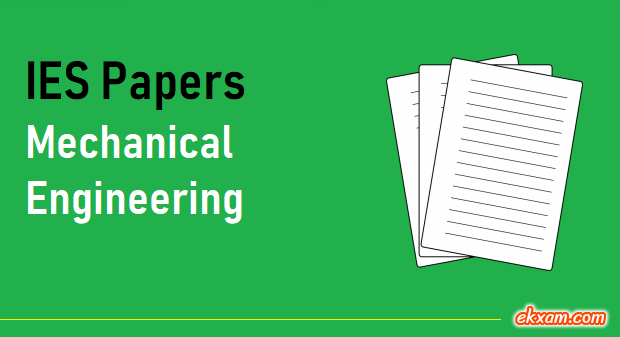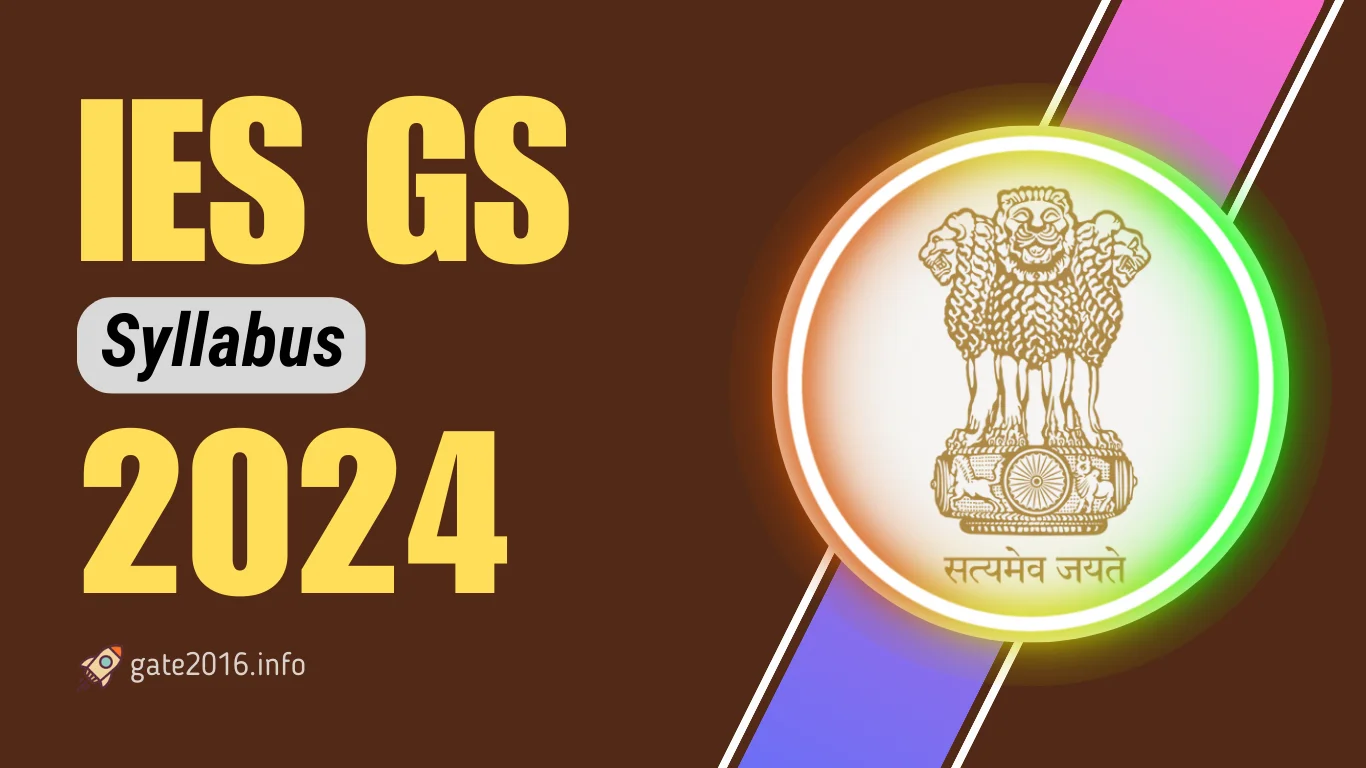Advertisements
Ratings
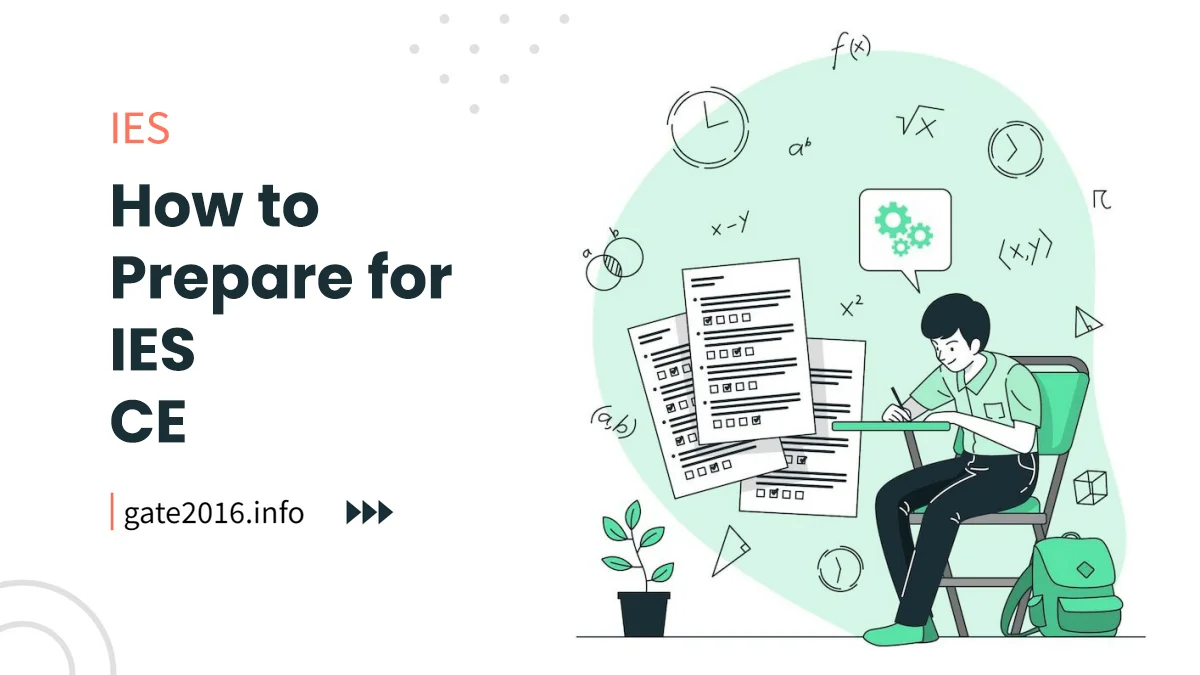
IES 2024 CE Preparation – The IES (Indian Engineering Services) Civil Engineering exam is a gateway to a rewarding career in the government sector for engineering graduates.
To succeed in this highly competitive exam, aspiring civil engineers need a well-structured and comprehensive preparation strategy.
This guide provides a step-by-step approach to prepare effectively for the IES Civil Engineering exam and achieve outstanding results.
Contents
- 1. Understanding the Significance of IES Civil Engineering
- 2. IES Civil Engineering Syllabus Overview
- 3. Understanding the IES Exam Pattern
- 4. Creating a Well-Structured Study Plan
- 5. Selecting Appropriate Study Materials
- 6. Mastering Core Civil Engineering Concepts
- 7. Enhancing Problem-Solving Skills
- 8. Reviewing Past Years’ Question Papers
- 9. Taking Mock Tests
- 10. Effective Time Management Strategies
- 11. Implementing Revision Techniques
- 12. Staying Updated with Engineering Trends
- 13. Coping with Exam Stress
- 14. Final Weeks’ Preparation
- 15. On the Exam Day
- 16. Post-Exam Analysis and Next Steps
- Conclusion: Excelling in IES Civil Engineering
- Additional Resources and References
- IES Civil Engineering Guidance
- IES Civil Engineering Preparation FAQs
- IES Total Information & Guidance
1. Understanding the Significance of IES Civil Engineering
The IES Civil Engineering exam holds immense significance for those seeking a career in government sectors such as railways, highways, and public works departments.
It not only offers job security but also provides opportunities to contribute to crucial infrastructure projects that shape the nation.
2. IES Civil Engineering Syllabus Overview
The IES Civil Engineering syllabus encompasses a wide range of subjects, including structural analysis, geotechnical engineering, fluid mechanics, and more. Here’s a breakdown of the main subjects and key topics:
Table 1: IES Civil Engineering Syllabus Breakdown
| Subject | Key Topics |
|---|---|
| Structural Analysis | Stresses, Strains, Bending Moment Diagrams |
| Geotechnical Engineering | Soil Mechanics, Foundation Engineering |
| Fluid Mechanics | Properties of Fluids, Fluid Dynamics |
| Environmental Engineering | Water Supply, Wastewater Treatment |
| Transportation Engineering | Highway Engineering, Traffic Engineering |
| Surveying | Chain Surveying, Levelling, Theodolite |
3. Understanding the IES Exam Pattern
Before diving into preparation, it’s crucial to comprehend the IES exam pattern:
- Preliminary Examination: The preliminary exam consists of objective papers (General Studies and Engineering Aptitude) and an Engineering Paper.
- Main Examination: The main exam involves conventional papers focusing on specific civil engineering disciplines.
- Personal Interview and Personality Test: Shortlisted candidates from the main exam are called for an interview to assess their suitability for the role.
4. Creating a Well-Structured Study Plan
Developing a well-structured study plan is the foundation of efficient preparation:
- Self-Assessment: Identify your strengths and weaknesses in different subjects.
- Study Schedule: Create a daily or weekly schedule, allocating time for each subject.
- Regular Practice: Dedicate time to solving practice problems and revising concepts.
- Mock Tests: Include regular mock tests to assess your progress and improve time management.
Table 2: Sample Study Plan
| Week | Subjects/Topics | Time Allocation |
|---|---|---|
| 1-2 | Structural Analysis | 12 hours/week |
| 3-4 | Geotechnical Engineering | 10 hours/week |
| 5-6 | Fluid Mechanics | 12 hours/week |
| 7-8 | Environmental Engineering | 8 hours/week |
5. Selecting Appropriate Study Materials
Choosing the right study materials is pivotal for comprehensive learning:
Table 3: Recommended Study Resources
| Subject | Books | Online Resources |
|---|---|---|
| Structural Analysis | “Strength of Materials” by R.S. Khurmi | NPTEL’s Civil Engineering Courses |
| Geotechnical Engineering | “Soil Mechanics: Principles and Practice” by Graham Barnes | Coursera’s Geotechnical Engineering Courses |
| Fluid Mechanics | “Fluid Mechanics and Hydraulic Machines” by R.K. Bansal | edX’s Fluid Mechanics Course |
| Environmental Engineering | “Water Supply Engineering” by S.K. Garg | Khan Academy’s Environmental Engineering |
| Transportation Engineering | “Transport Planning and Traffic Engineering” by Samuel Morgan | YouTube Lectures on Transportation |
| Surveying | “Surveying” by B.C. Punmia | MIT OpenCourseWare Surveying |
6. Mastering Core Civil Engineering Concepts
Strengthening your understanding of core civil engineering concepts is essential:
- Structural Analysis: Grasp stresses, strains, bending moment diagrams, and more.
- Geotechnical Engineering: Understand soil mechanics, foundation engineering, and related principles.
- Fluid Mechanics: Familiarize yourself with properties of fluids, fluid dynamics, and flow behavior.
7. Enhancing Problem-Solving Skills
Consistent practice of problem-solving hones your skills:
- Diverse Problem Sets: Solve problems of varying complexity to refine your problem-solving abilities.
- Real-World Application: Apply civil engineering principles to practical scenarios for deeper insight.
8. Reviewing Past Years’ Question Papers
Solving previous years’ question papers offers valuable insights:
Table 4: Benefits of Solving Past Years’ Papers
| Benefit | Description |
|---|---|
| Identify Question Patterns | Recognize recurring question types |
| Time Management | Practice managing time during the exam |
| Focus on Key Topics | Understand distribution of questions |
| Self-Assessment | Evaluate your level of preparedness |
9. Taking Mock Tests
Mock tests simulate exam conditions and help assess your readiness:
Table 5: Benefits of Taking Mock Tests
| Benefit | Description |
|---|---|
| Simulate Exam Conditions | Experience time constraints and exam pressure |
| Time Management | Enhance time allocation for each section |
| Performance Analysis | Identify strengths and weaknesses |
| Build Confidence | Boost self-assurance before the exam |
10. Effective Time Management Strategies
Strategic time management during the exam is vital:
Table 6: Time Management Strategy
| Section | Recommended Time Allocation |
|---|---|
| General Studies and Engineering Aptitude | 2 hours |
| Engineering Paper | 3 hours |
| Conventional Papers | Varies by paper |
11. Implementing Revision Techniques
Regular revision ensures retention of information:
- Structured Revision: Allocate time for revisiting key concepts.
- Summary Notes: Create concise notes for quick review before the exam.
12. Staying Updated with Engineering Trends
Stay informed about the latest developments and trends in civil engineering:
- Civil Engineering Journals: Subscribe to reputable journals for recent research and advancements.
- Industry News: Read engineering magazines, news, and online sources to stay updated.
13. Coping with Exam Stress
Effective stress management is crucial for optimal performance:
- Stress-Relief Techniques: Practice meditation, deep breathing, or exercise to alleviate stress.
- Mindfulness: Incorporate mindfulness techniques to maintain focus and concentration.
14. Final Weeks’ Preparation
In the final weeks leading up to the exam, focus on fine-tuning your knowledge:
- Focused Revision: Revise complex topics and formulas.
- Mock Tests: Take additional mock tests for a final round of practice.
15. On the Exam Day
Remain calm and focused on the exam day:
- Read Carefully: Carefully read and analyze questions before attempting them.
- Time Allocation: Allocate time based on question complexity.
16. Post-Exam Analysis and Next Steps
Evaluate your performance and plan for the future:
- Performance Evaluation: Analyze your performance and identify areas for improvement.
- Future Plans: Consider advanced studies or career opportunities based on your results.
Conclusion: Excelling in IES Civil Engineering
Following the comprehensive strategies outlined in this guide equips aspiring civil engineers with the tools needed for successful IES Civil Engineering exam preparation.
Success in this exam not only opens doors to prestigious career options but also allows individuals to contribute to the nation’s infrastructure growth.
Additional Resources and References
Explore the recommended textbooks, online courses, and practice papers mentioned in this guide for additional study materials and references.
These resources will further enhance your understanding and preparation for the IES Civil Engineering exam.
IES Civil Engineering Guidance
- How to Prepare for IES Civil Engineering: A Comprehensive Guide
- IES CE Syllabus 2024: Prelims and Mains
- IES CE Subjective Papers – (2023-2009)
- [PDF] IES CE Objective Papers – (2023-2000)
- IES CE Books 2024: Prelims and Mains
IES Civil Engineering Preparation FAQs
What is IES Civil Engineering (CE)?
IES Civil Engineering is a competitive examination conducted by the Union Public Service Commission (UPSC) in India.
It is part of the Indian Engineering Services (IES) examination and is conducted to recruit engineers for various government departments and organizations. IES CE assesses candidates' knowledge and skills in civil engineering.
What are the important subjects to focus on for IES Civil Engineering preparation?
Key subjects to focus on include structural engineering, geotechnical engineering, transportation engineering, environmental engineering, water resources engineering, and construction materials and management. The IES CE syllabus covers a wide range of topics in civil engineering.
How should I prepare for the IES Civil Engineering exam?
Effective preparation involves a comprehensive approach:
- Create a structured study plan based on the IES CE syllabus.
- Utilize standard textbooks and reference materials for each subject.
- Solve previous years' question papers and practice mock tests to get a feel for the exam pattern.
- Focus on numerical problem-solving and conceptual understanding.
- Stay updated with current trends in civil engineering and government policies related to the field.
Are there any recommended books or resources for IES Civil Engineering preparation?
Yes, some recommended books and resources include:
- 'Civil Engineering: Conventional and Objective Type' by R.S. Khurmi and J.K. Gupta
- 'Design of Concrete Structures' by Arthur H. Nilson, David Darwin, and Charles W. Dolan
- 'Soil Mechanics and Foundation Engineering' by Dr. K.R. Arora
- 'Highway Engineering' by S.K. Khanna and C.E.G. Justo
- 'Environmental Engineering' by Howard S. Peavy, Donald R. Rowe, and George Tchobanoglous
- Online courses, lecture videos, and research papers from reputable institutions and platforms related to civil engineering.
What is the exam pattern for IES Civil Engineering, and how should I approach it?
IES CE consists of a written examination followed by an interview. The written examination typically comprises two papers—Paper I (Objective) and Paper II (Conventional).
Paper I consists of multiple-choice questions, while Paper II involves descriptive answers.
To approach it effectively, practice time management, work on problem-solving skills, and focus on both theoretical and practical aspects of civil engineering.
Additionally, prepare for the interview by revising core concepts and staying updated with industry developments.
Recent Posts
- IES 2024 Expected Cut-off Marks: Prelims and Mains
- How to Prepare for IES Electrical Engineering: A Comprehensive Guide
- How to Prepare for IES Electronics Engineering: A Comprehensive Guide
- IES 2024 Vacancy – Branch-wise and Category-wise Distribution
Related Tags
How to prepare for ies civil engineering quora 2024, How to prepare for ies civil engineering pdf 2024, How to prepare for ies civil engineering in india 2024, ies exam preparation books 2024, ies preparation strategy for ece 2024, how to prepare for ese without coaching 2024, ese preparation strategy 2024, is ies tougher than jee 2024
| IES/ESE GS & EA Books |
| IES/ESE Guide Books |
IES Total Information & Guidance
Click below given links to get further information.


